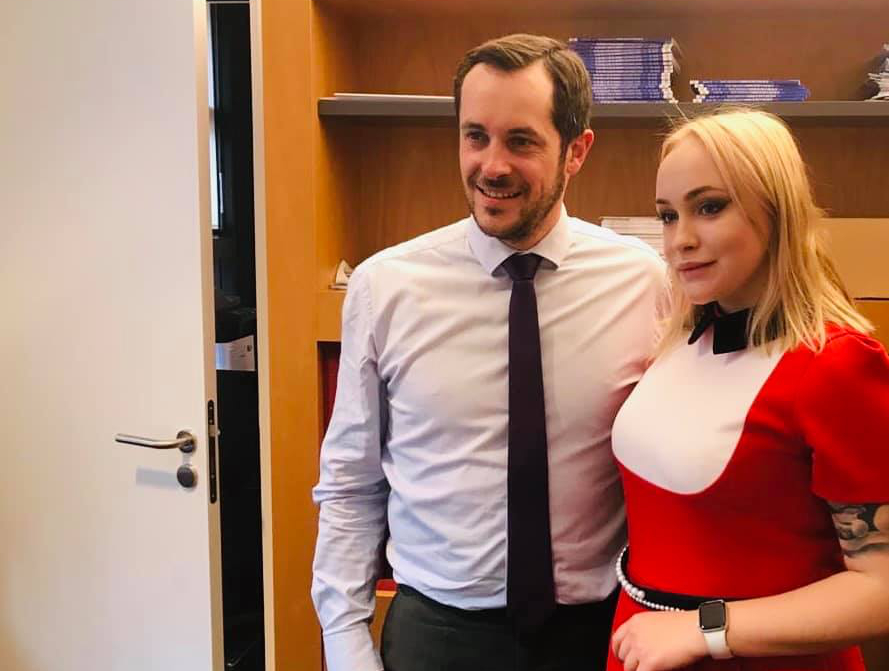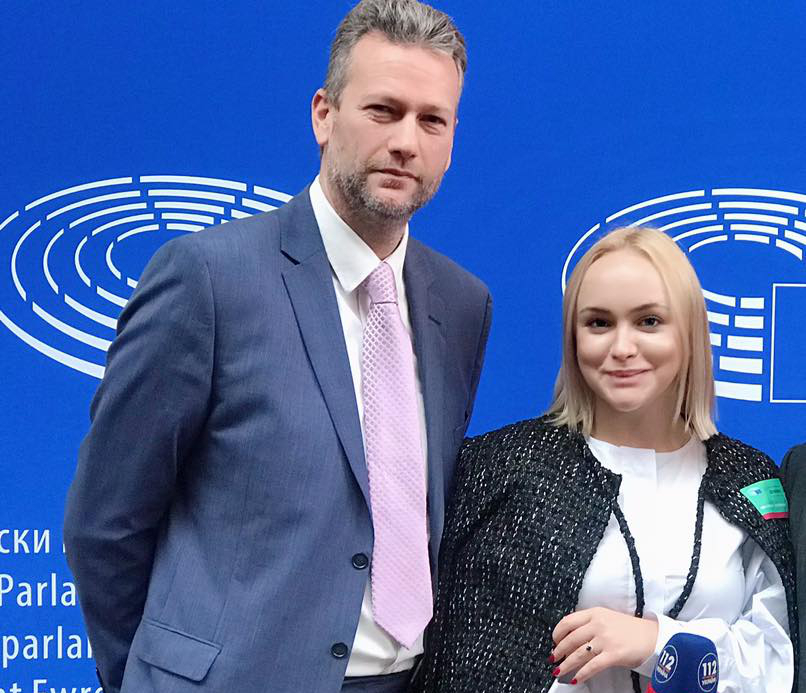Nigel Farage's claims that the West allegedly provoked the Russian invasion of Ukraine are not coming out of nowhere, and the context behind this picture from a few years ago helps understand his claims. Left: Farage, right: Nadia Borodi (Sass). 1/10 

Borodi is originally from Ukraine, and together with her partner Oleh Voloshyn they operated an agent network in Europe on behalf of Ukrainian pro-Russian politician Viktor Medvedchuk. Left: Borodi, right: Voloshyn. 2/10 

While still in Ukraine, and when Ukraine still tolerated (mistakenly) agents of Russian influence, both promoted pro-Kremlin politics, and actively used European politicians for their objectives. Here's Borodi with Nicolas Bay of the French National Front/Rally. 3/10 

Through Voloshyn/Borodi, Medvedchuk would also cooperate with the German far-right Alternative for Germany (AfD): from left to right, Oleh Voloshyn, Petr Bystron (AfD), Viktor Medvedchuk, Maximilian Krah (AfD) and Ulrich Singer (AfD). 4/10 

One special area of interest for Medvedchuk was also the British far right: UKIP/Brexit Party (now Reform UK), and Borodi/Voloshyn actively engaged with members of Nigel Farage's political project: Nathan Gill, David Coburn and Jonathan Arnott. Here's Borodi with Gill. 5/10 

Through Voloshyn and Borodi, UKIP/Brexit Party were connected to Viktor Medvedchuk's media projects that were run by Artem Marchevsky. Here's a panel at the European Parliament in Strasbourg in 2019 featuring David Coburn, Nathan Gill, Marchevsky and some others. 6/10 

Voloshyn and Borodi fled Ukraine just one month before the beginning of the Russian full-scale invasion of Ukraine in February 2022. Medvedchuk failed to flee, was arrested and then exchanged for several Ukrainian PoWs. Marchevsky fled Ukraine and somehow settled in Czechia. 7/10 

Neither Medvedchuk nor Marchevsky retired from pro-Russian activism. Medvedchuk started cooperating with the Russian Social Design Agency infamous for “Operation Doppelgänger”: 8/10euobserver.com/news/ar53fd9f38
And as we now know, Medvedchuk and Marchevsky set up the Russian front media organisation "Voice of Europe" that was busted by the Czech intelligence earlier this year: 9/10 bbc.com/news/world-eur…


The "Voice of Europe" promotes Eurosceptic politicians, and especially those who voice ideas close to what Farage said about the West, Russia and Ukraine. Given the many connections between Farage's political project and pro-Kremlin operatives, this is hardly surprising. 10/10 

• • •
Missing some Tweet in this thread? You can try to
force a refresh





